As you enter a coffee shop, you’re greeted with the friendly face of a cashier. A kind word. A smile. Maybe they even compliment your shirt. Their chipper attitude uplifts you. When the time comes to pay, the screen displays an option to add a tip. You ponder for a moment, select a little more than you usually would, and think, “They deserved that.”
The convention of tipping is a relic of the past that perpetuates an imbalance in power between servers and customers. Like all employees, those in the service industry deserve to earn comfortable and reliable compensation.
On the surface, tipping more when a server does an excellent job is meritocratic. It rewards hard work.
The issue lies in who makes those decisions. Based on a 30-second interaction at a counter, a customer has the power to determine how much a worker takes home that day. Livelihoods shouldn’t depend on brief, passing judgments by consumers.
Tipping removes professionalism from a job and reduces it to a quest to charm passersby who have little or no real knowledge of the profession. Sometimes, it turns out, the customer does not actually know best.
Not only is tipping arbitrary, but it’s also condescending. The convention began in the Middle Ages, where servants were given extra money from their masters if they performed well. In the United States, historians say tipping has racist roots: after slavery was abolished, white business owners replaced wages with tips to steal Black labor. Time has passed, but the demeaning and unscrupulous essence of tipping has not.
In a perfect world, tipping would vanish and service workers would simply be paid sufficient wages. Part of what perpetuates low base wages for service workers is the presumption by employers that customers will provide generous tips.
In some areas, efforts are underway. In Chicago, subminimum wage will be completely phased out by 2028. Still, even workers who are paid minimum wage or above struggle to make ends meet without tips.
For now, tips are critically important to the livelihoods of service workers, and tipping is here to stay, along with wages that are not nearly livable.
Until service workers are paid reasonable wages not reliant on the whim of a tip, we should provide them with generous — and consistent — tips to the best of our own financial ability. We should tip all of them as much as we can, knowing that we are not the best judges of their work.
Whether the cashier offers a smile or a glare, they deserve a tip that they can depend on.










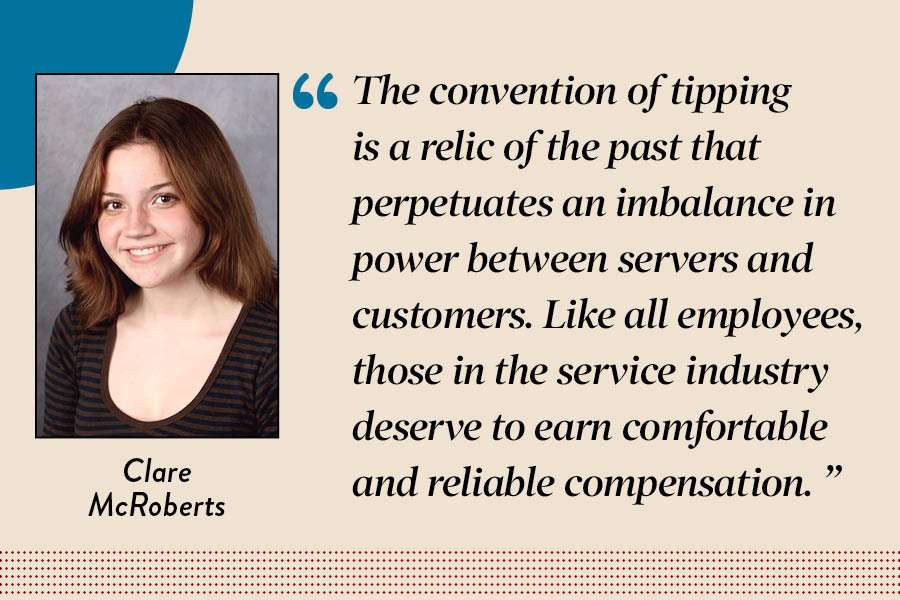
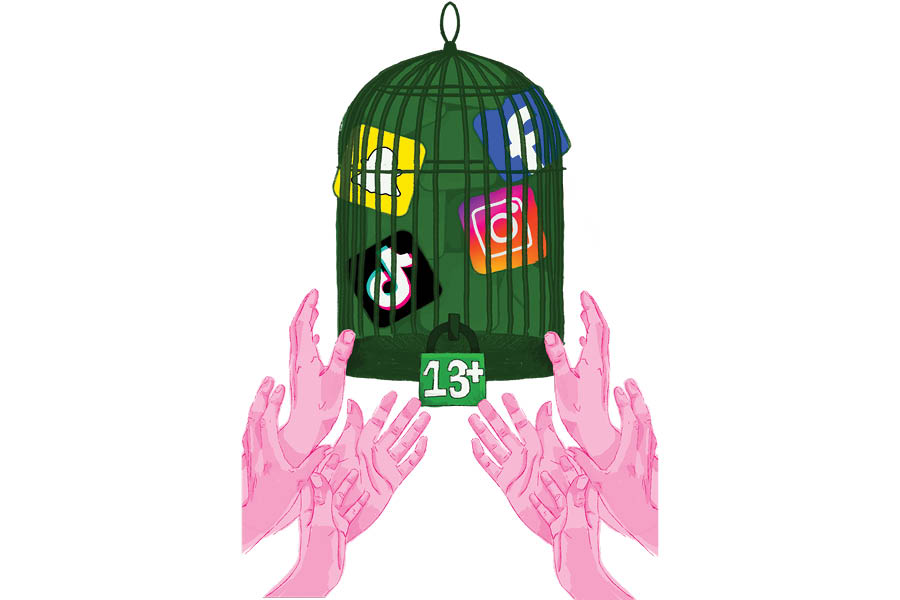
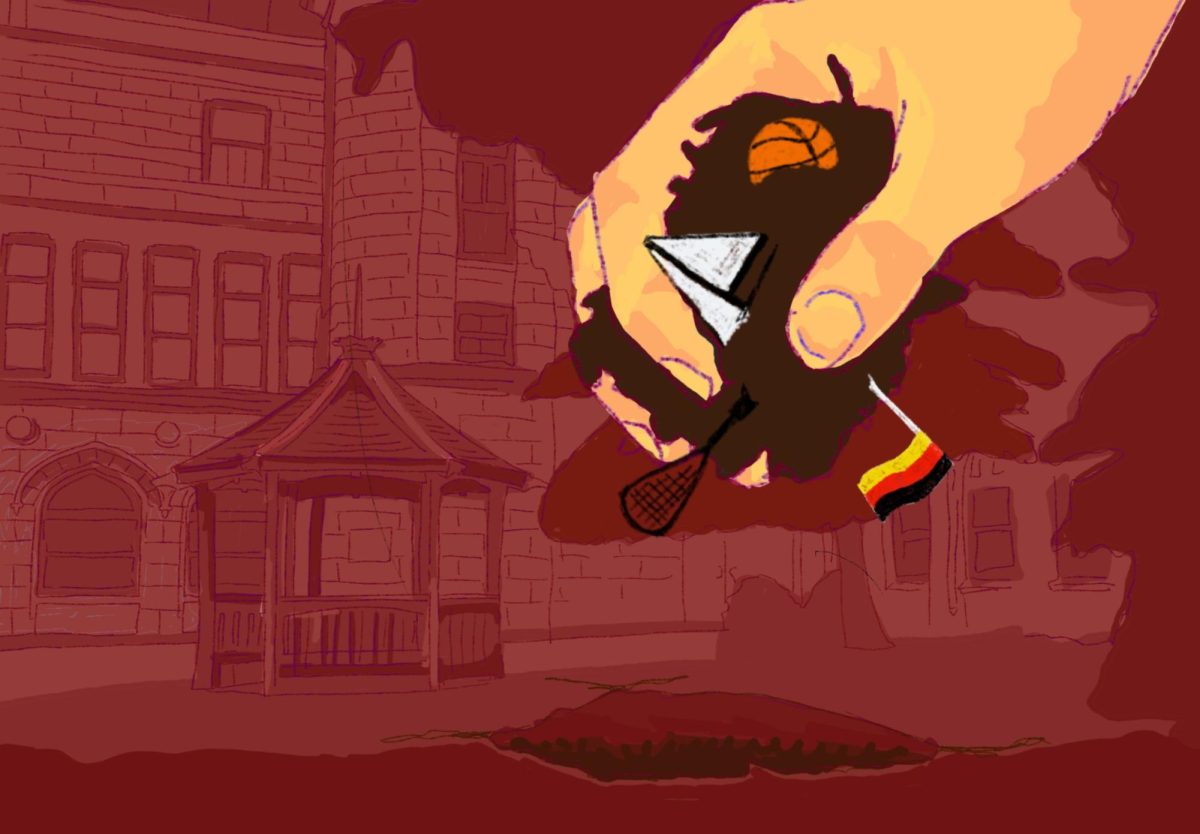
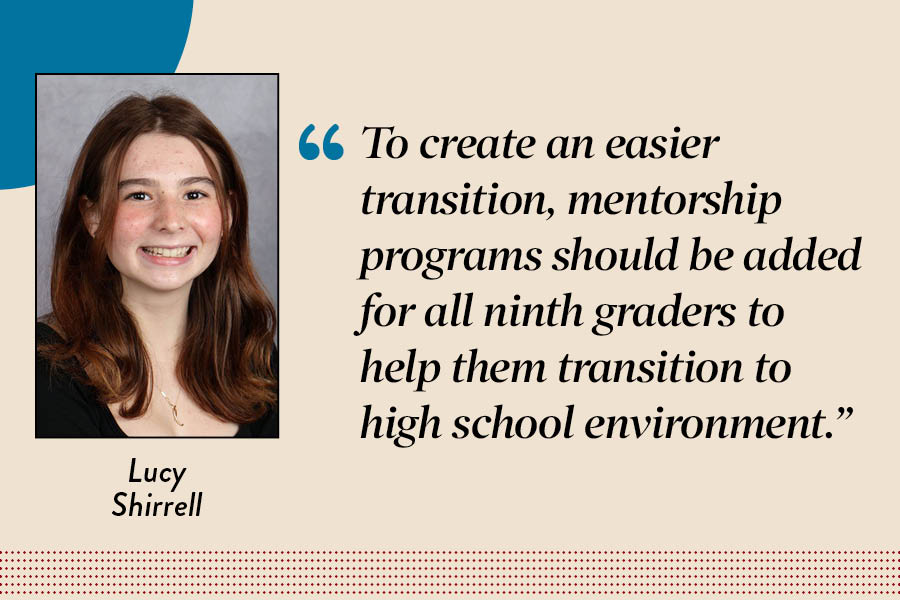
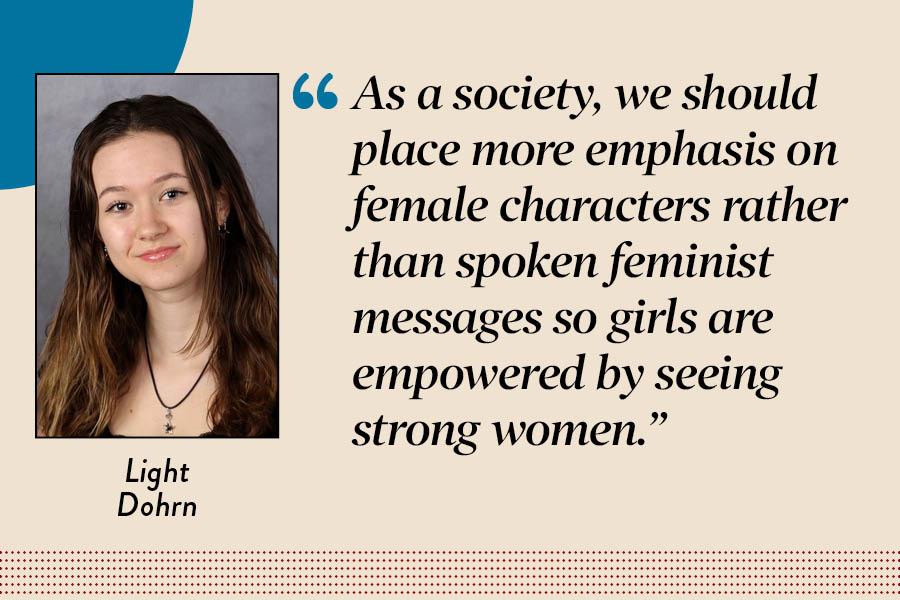



Yuli Arseniy • Mar 7, 2024 at 10:29 am
Disagree. The servers are being paid fair market value for their labor and their ability to utilize capital goods to offer consumer goods to their customers. The presumption that additional compensation is *necessary* is a falsehood based in socialist rhetoric. Tipping is a nice gesture, not so helpful as to correct the wages of the workers.